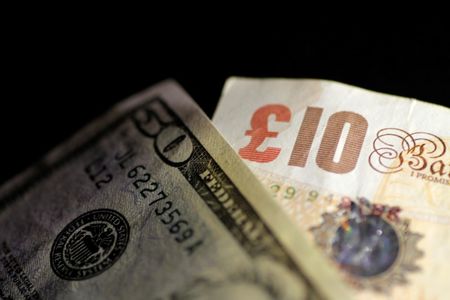Investing
The U.S. dollar edged lower in early European trade Friday, remaining around seven-month lows amid concerns of a U.S. economic slowdown, while sterling retreated after weak retail sales data.
At 03:15 ET (08:15 GMT), the Dollar Index, which tracks the greenback against a basket of six other currencies, edged 0.1% lower at 101.750, just above the seven-month low of 101.51 seen on Wednesday.
The index is down 1.3% this year after sharp losses in the last quarter of 2022 as investors bet that the Federal Reserve will slow the pace of its interest rate rises amid signs inflation has peaked.
At the same time, U.S. data this week have suggested the world’s biggest economy was slowing, with retail sales dropping 1.1% on the month in December, industrial production falling 0.7%, and manufacturing production down 1.3%.
“This is the third consecutive month of contraction in industrial activity with output declines looking broad-based,” analysts at ING said, in a note. “Coming on the back of the weakness in retail sales, the steep drop in industrial production and news of more job lay-offs adds to fears the U.S. could already be in recession.”
Elsewhere, GBP/USD fell 0.1% to 1.2372 after U.K. retail sales unexpectedly fell in December, dropping by 1%, much weaker than the predicted 0.5% monthly rise.
“Retail sales dropped again in December with feedback suggesting consumers cut back on their Christmas shopping due to affordability concerns,” Heather Bovill, the Office of National Statistics’ deputy director for surveys and economic indicators, said.
EUR/USD rose 0.2% to 1.0850, trading around levels not seen since early April 2022, after European Central Bank President Christine Lagarde warned, at the World Economic Forum in Davos, Switzerland on Thursday, that inflation figures remained “way too high”, reiterating the need for aggressive monetary policy decisions.
USD/JPY rose 0.3% to 128.81 after Japan’s core consumer prices rose 4.0% in December from a year earlier, double the central bank’s 2% target.
Trading in the yen has been volatile of late amid expectations that the BOJ will soon end its ultra-easy monetary policy in the near future.
AUD/USD rose 0.5% to 0.6945, NZD/USD rose 0.6% to 0.6439, while USD/CNY fell 0.1% to 6.7705, with the yuan set to lose 1.3% this week, as rising COVID-19 cases in China have cast doubts over its near-term economic prospects.
The People’s Bank of China kept its benchmark loan prime rate at historic lows for a fifth straight month on Friday.




